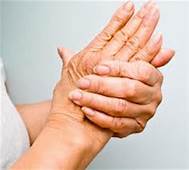You’ve most likely experienced at any rate once that, in the wake of being similarly situated for quite a while, you feel that a piece of your body “nods off.” Then, when you attempt to move, you begin feeling a tingling sensation there. At times it turns out to be awkward to the point that you would even prefer not to move. In case you’re considering how to stop that and why it happens you’ve arrived on the correct article.
What this tingling sensation is really called
As per the National Institute of Neurological Disorders and Stroke, the vibe of deadness, just as consuming or prickling in your body, is called paresthesia. This is generally felt in your grasp, arms, legs, or feet, yet can likewise happen in different pieces of your body. You’ve likely had this inclination previously, maybe a lot of ants is slithering through that piece of your body, and it tends to be entirely awkward.
An investigation that investigated sensations stimulated in appendages when applying pressure shows that this deadness generally shows up without earlier notice. That is on the grounds that the subject isn’t typically mindful of when the inclination begins. In addition, it doesn’t generally cause torment, yet for the most part uneasiness. A great many individuals around the globe are liable to having these sorts of distress, particularly those whose calling could restrict their actual versatility, similar to office occupations where it’s entirely expected to spend extended periods plunking down.
When does the deficiency of sensation happen
It will not come as an amazement to say that, eventually in our lives, we have all accomplished what’s formally called transient paresthesia. You may have depicted it as a piece of your body “nodding off” and it’s prominently alluded to as “a tingling sensation.” This happens when we have been similarly situated for quite a while. It additionally regularly happens when we sit with our legs crossed or nod off with one arm collapsed under our head.
As a rule, this happens when supported pressing factor is applied on a nerve, as we referenced previously. In any case, you should realize that it can likewise be the aftereffect of a current physical issue or some other hidden condition including harm to the sensory system, similar to a nerve injury, a herniated plate, a tumor, or something different.
How long does the tingling sensation last
When experiencing paresthesia, the influenced appendage gets numb and firm, and yet stays adaptable. This expands the affectability of the influenced region when it lays on a hard or delicate surface, and as it spreads to different pieces of the influenced appendage.
The vibe of a dead appendage normally disappears decently fast once the tension on the nerve that was influenced is mitigated, making the blood course there once more. With the end goal for this to occur, you can simply move the insensible part by doing activity, extending, or rubbing it. Slowly, the tingling will decrease until it vanishes.
These are some potential results of paresthesia
In any case, because of the sensations created by paresthesia, there are a few results that may happen. A portion of these are:
• Blood flow issues
• Adoption of unusual stances while dozing, bringing about different problems because of sleepiness or absence of rest
• Difficulty strolling or driving
• Increased danger of falling
There are various kinds of paresthesia
A few kinds of paresthesia are:
• Buerger’s paresthesia: this is a sort of skin paresthesia, portrayed by tingling, stinging, or shortcoming and loss of sensation in the legs, fingers, and toes. The manifestations from this paresthesia can some of the time be confused with atherosclerosis and different sorts of illnesses. The ordinary patients are really youngsters, from 20 to 24 years of age, that have undesirable propensities.
• Meralgia paresthetica: a condition portrayed by deadness, tingling, and copying in the external thigh.
At the point when paresthesia gets ongoing
On the off chance that this bizarre tingling sensation feeling happens to you or somebody you know on an exceptionally ordinary premise, at that point we may be managing an instance of persistent paresthesia. This is generally the manifestation of a neurological infection or of horrendous nerve harm. It very well may be brought about by messes influencing the focal sensory system in any case. A portion of these can be a stroke, different sclerosis, or encephalitis. A tumor or vascular injury could likewise be the reason for this issue. A few conditions, similar to carpal passage disorder, can harm fringe nerves and cause paresthesia joined by torment.
It’s imperative to visit your PCP’s office
The determination, that is constantly done by a subject matter expert, generally comprises of an investigation of the patient’s clinical history, an actual assessment, and research facility tests. At times, contingent upon the patient, the doctor may demand extra tests. On the off chance that the reason for the consuming or tingling is a neurotic condition, it’s essential to monitor it.
In this manner, you ought to counsel a doctor if:
• You experience the ill effects of unexpected paresthesia or shortcoming.
• The deadness continuously spreads to different pieces of your body.
• You experience difficulty relaxing.
• You experience the ill effects of bladder as well as gut incontinence.
• You feel deadness on the two sides of your body.
• You lose sensation in your face or middle.
• The whole appendage “nods off” totally.
• You experience changed cognizance.
• You have changes in vision.
• You have discourse issues
• The paresthesia happens in the wake of hitting your head, neck, or back.

 English
English






